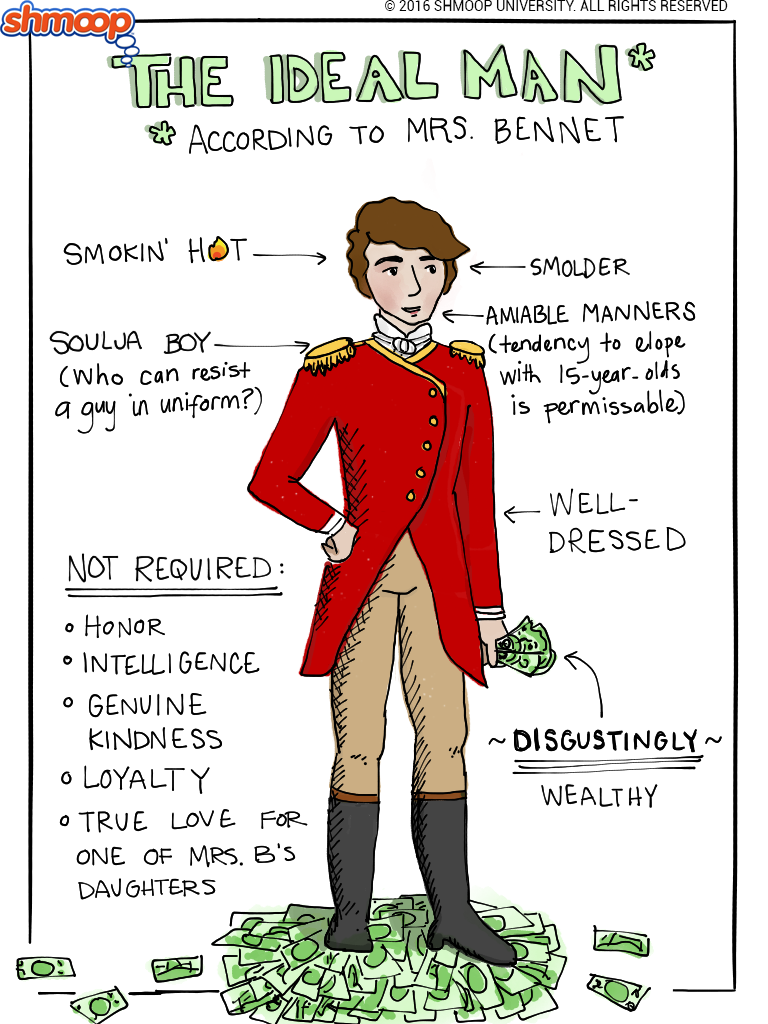 (Click the themes infographic to download.)
(Click the themes infographic to download.)
In Pride and Prejudice, characters are divided into certain types. There are those who just regurgitate whatever principles they've been taught without much understanding of either the context or appropriateness of what they are saying. Then there are those who hold on as hard as possible to a few principles of behavior or belief and cannot be swayed from them. Finally, there are those who are entirely unprincipled, and whose moral and ethical beliefs are totally changeable depending on the situation.

(Click the infographic to download.)
Questions About Principles
- Which characters lack pride? Does that make them less interesting? More interesting? Stronger or weaker characters?
- What works better in the novel—being adaptable (like Mrs. Bennet in regards to Lydia, for example) or being intractably principled (like Lady de Bourgh, for instance)? How do you know?
- Many of the principles that the novel holds up are then systematically disproved. Can you find a couple of examples of this? How are they shown to be false?
Chew on This
In the novel, Mary Bennet is a sort of walking "Greek chorus" who functions as a mouthpiece for the standard principles of the day. The novel mocks her as an efficient way to dispose of these principles.
In the novel, even though Mary Bennet is satirized for being a very young girl with a very formal and ponderous way of speaking, she actually ends up saying a lot of the wisdom that the main characters have to come to learn and internalize before they can move ahead in life.